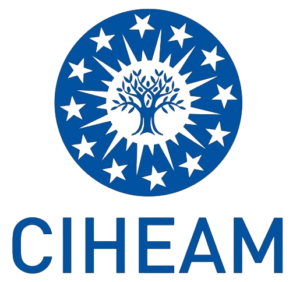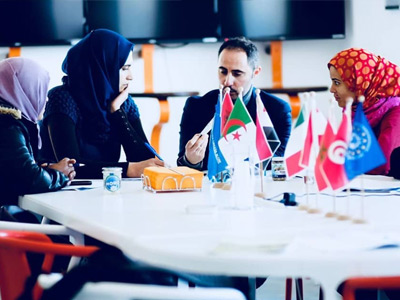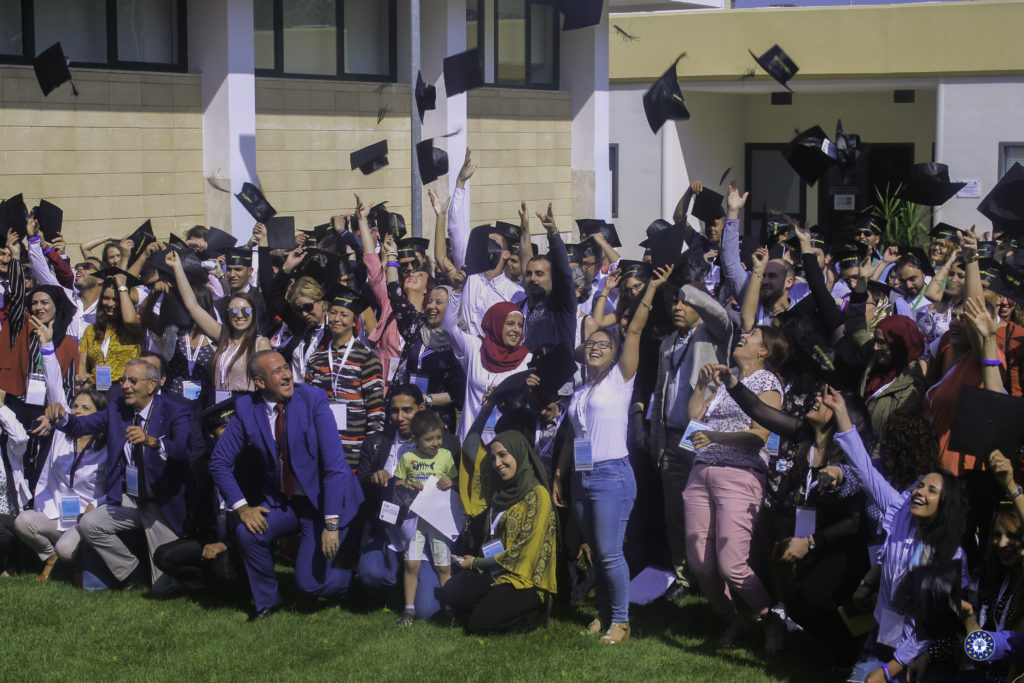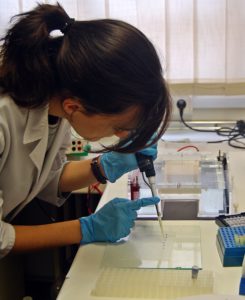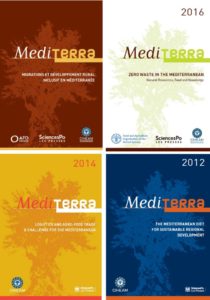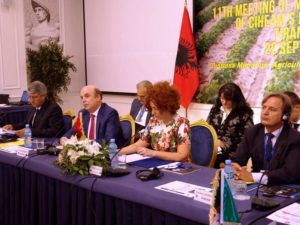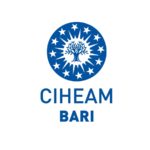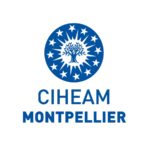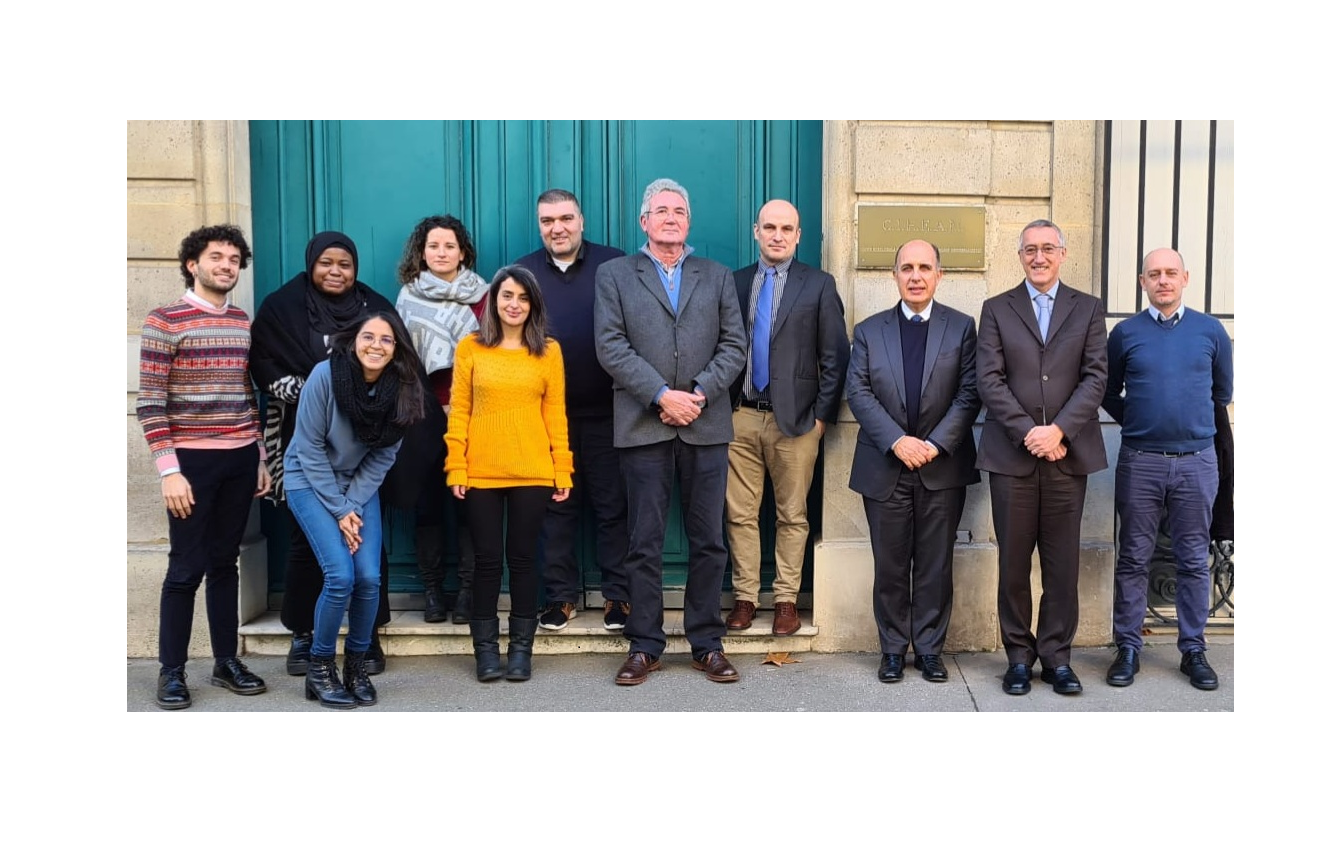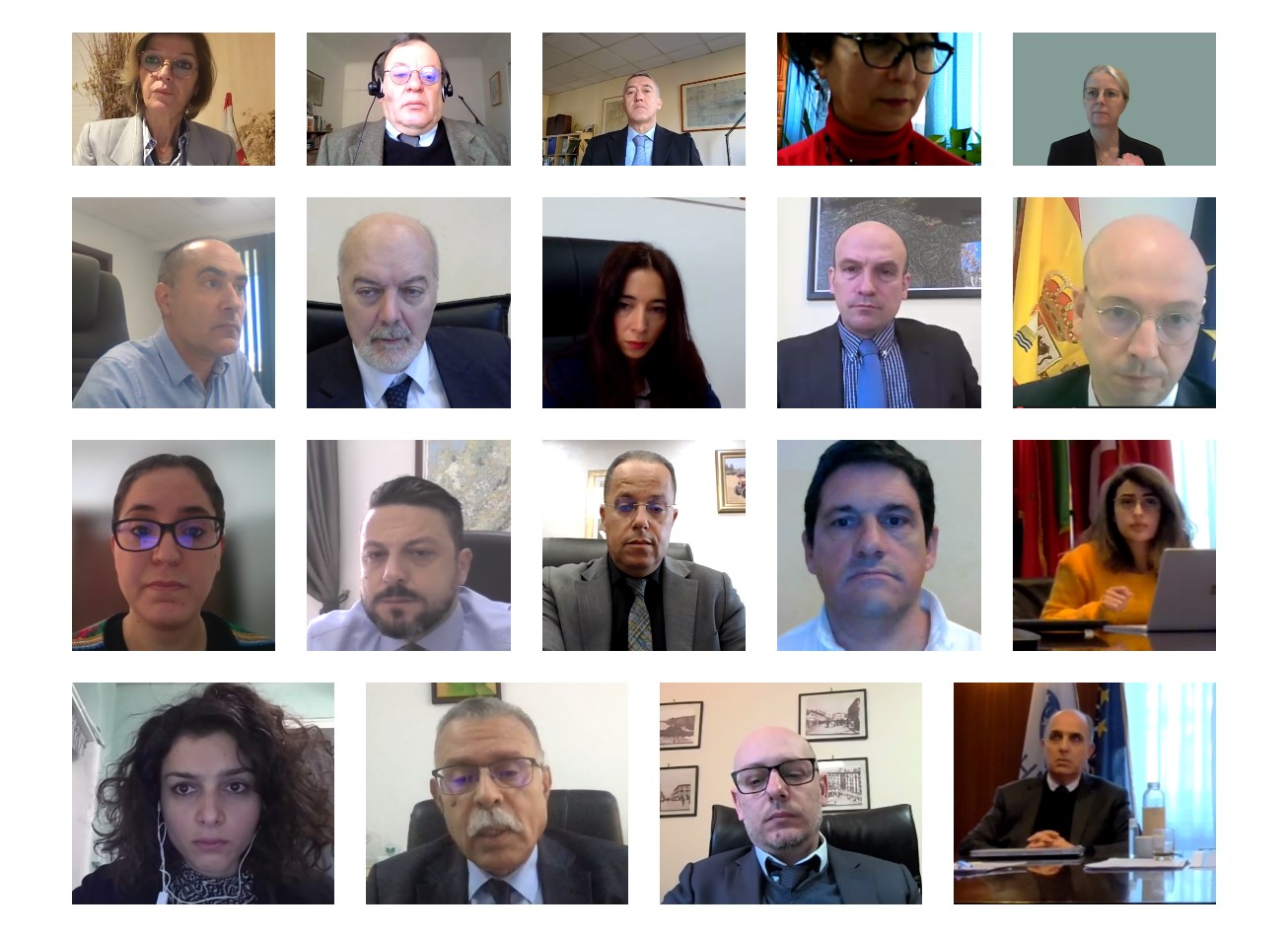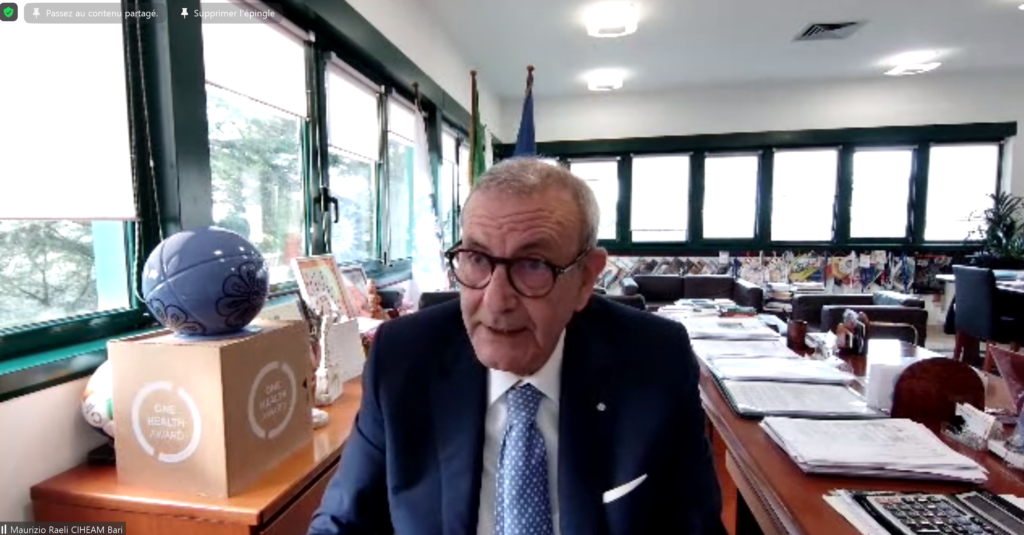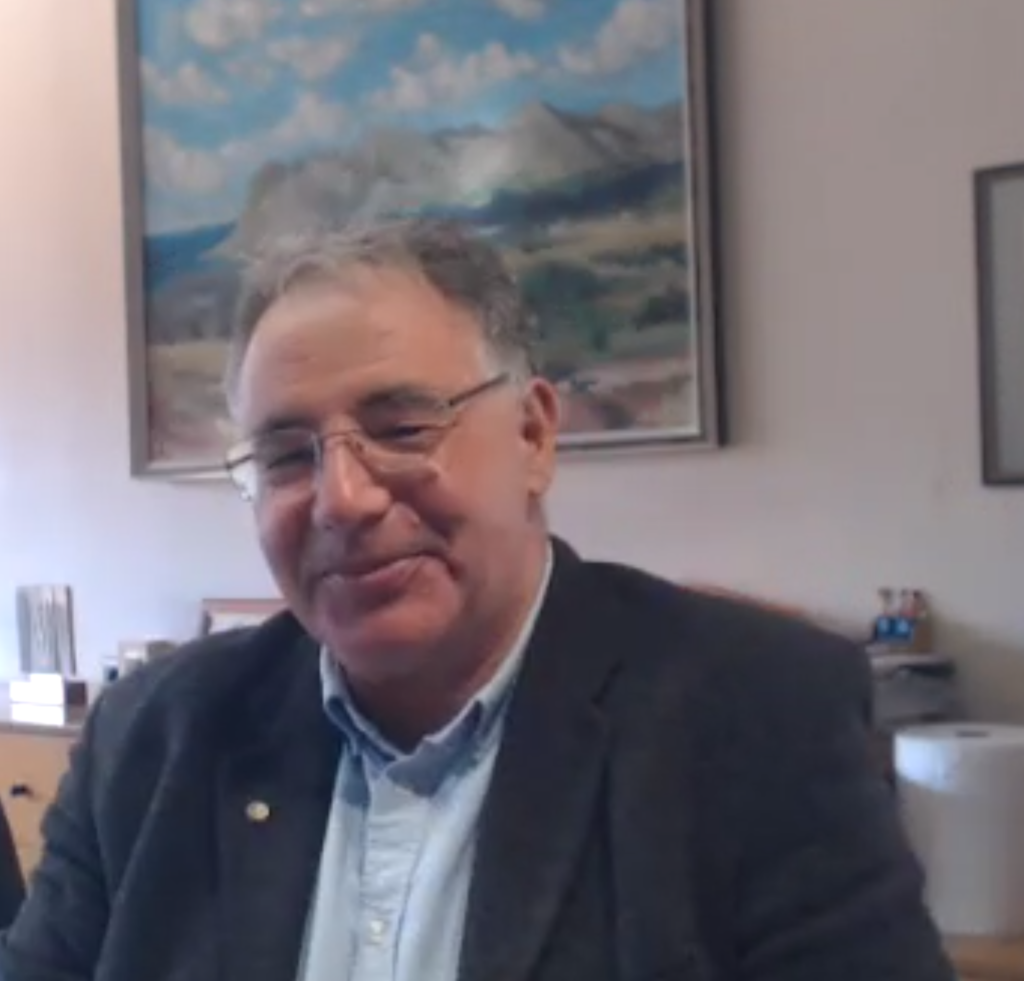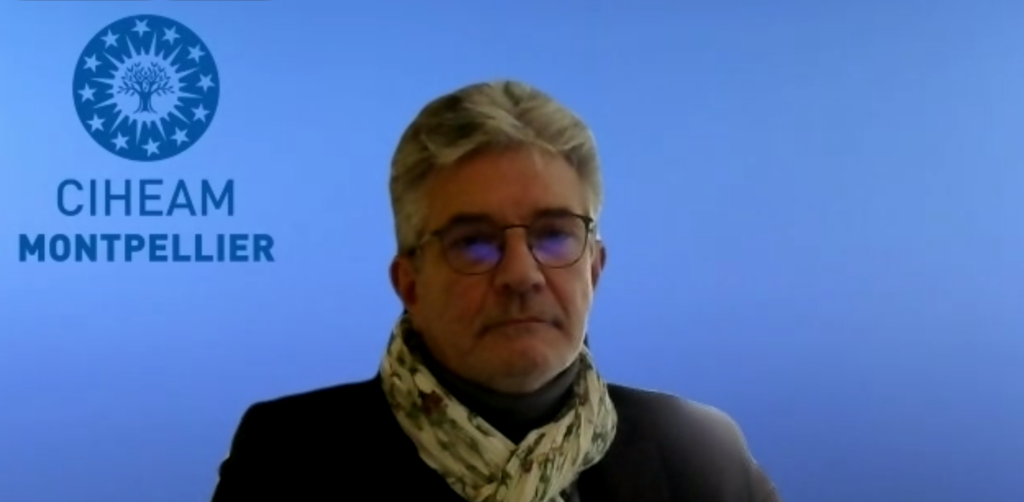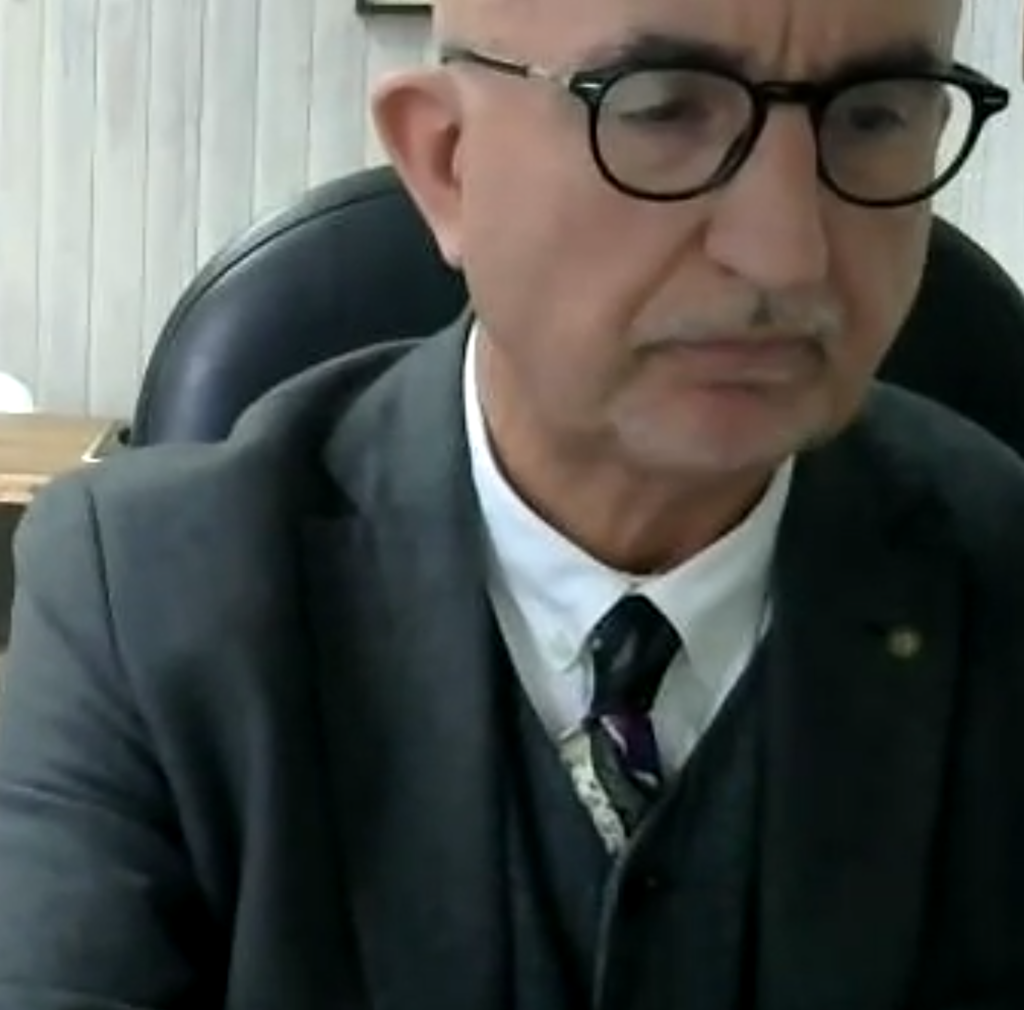The CIHEAM Governing Board meets for the 152nd time
Chaired by Mr. Mohamed Sadiki, current Minister of Agriculture, Maritime Fisheries, Rural Development, Water and Forests of Morocco, the 152nd meeting of the Governing Board of the International Centre for Advanced Mediterranean Agronomic Studies (CIHEAM) was held online on Friday 16 December.
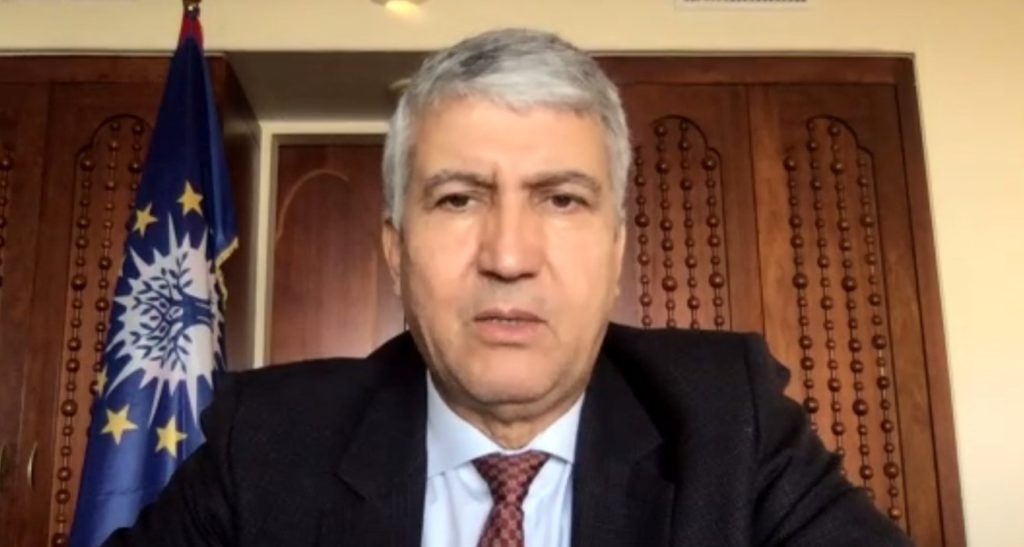
"The multiple challenges in our region have a strong impact on agri-food value chains and weigh on food security. Nevertheless, they represent an opportunity to accelerate transitions towards more sustainable and resilient models"
-Mr. Mohamed Sadiki, President of the Governing Board
Paris, 16 December 2022
The Delegations of the Member States exchanged with the Secretary-General and the Directors of the 4 CIHEAM Agronomic Institutes based in Bari (Italy), Chania (Greece), Montpellier (France), and Zaragoza (Spain) on the projects carried out and the initiatives launched this semester in a particular Mediterranean context.
The President recalled the many challenges in the Mediterranean region that have a strong impact on agri-food value chains and that weigh on food security. He nevertheless considered that these crises represent an opportunity to be seized in order to accelerate the transition towards more sustainable production and consumption models, more resilient to the impacts of climate change, and more resistant to the disruption of supply chains and to market instability.
In this respect, he encouraged CIHEAM to continue working to make agriculture and food a priority of Mediterranean cooperation, based on science and research, human capital training and mobility programs, multilateral dialogue, and multi-actor collaboration.
A year marked by the celebrations of CIHEAM's 60th anniversary
To celebrate the 60 years of the Organisation and its enduring centrality in the Mediterranean landscape, the General Secretariat and the 4 Institutes organized events highlighting CIHEAM's priority areas and presenting solutions to the problems arising in the sector.
The initiatives aimed at strengthening sustainable agri-food systems, fostering the sustainable management of coastal areas and fisheries, and at empowering youth and women in rural and agricultural territories. The preparation of the celebrations has given great importance to the fruitful dynamics of international partnerships with governments and other international organizations.
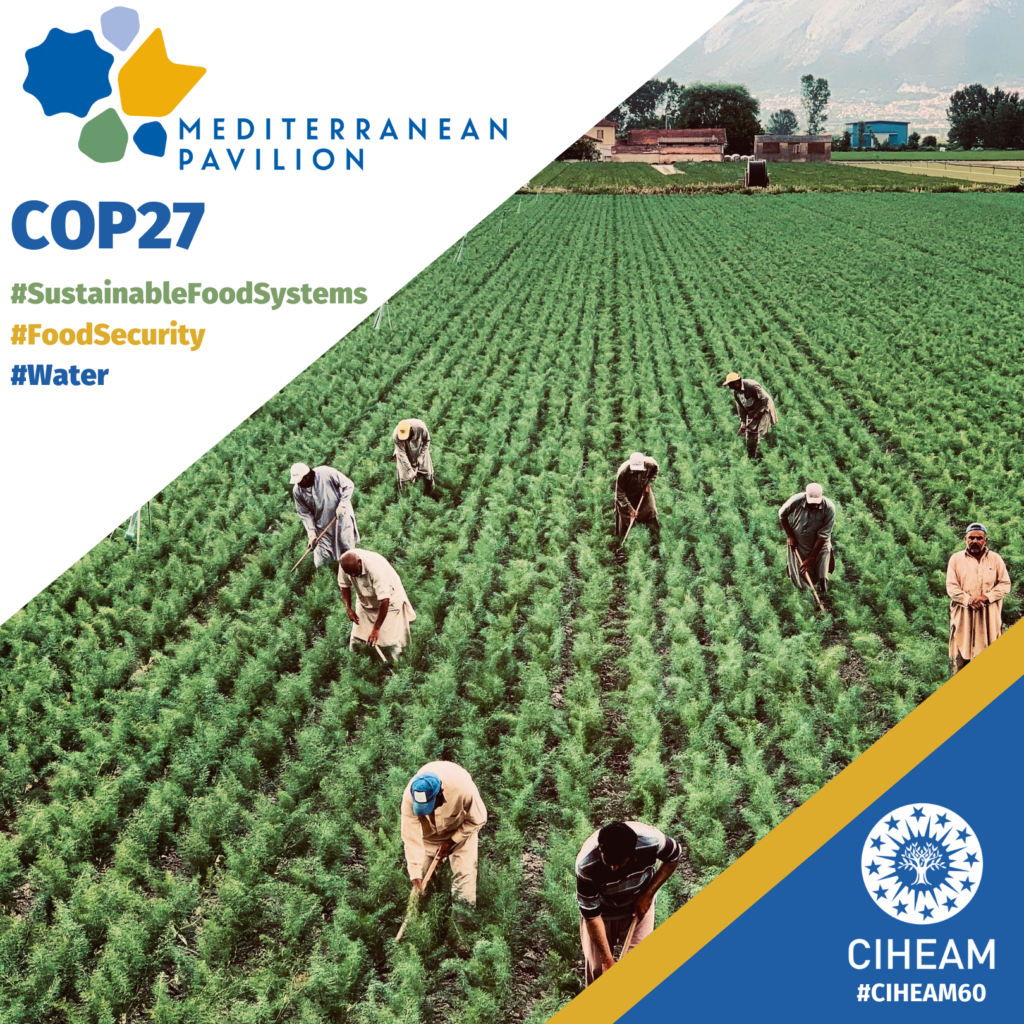
In addition to these activities, CIHEAM's participation in COP 27 was also mentioned. Several side events in the Mediterranean Pavilion were organized and other parallel interventions gave the organization high visibility. Climate change is hitting Mediterranean countries hard, especially the agricultural sectors. CIHEAM is therefore working to strengthen its actions, in close collaboration with the territories and communities that play an essential role in implementing prevention and adaptation solutions.
The General Secretariat and the CIHEAM Institutes of Bari, Chania, Montpellier, and Zaragoza also presented their new training, research, and cooperation activities planned for 2023, as well as the future perspectives to keep up with ongoing evolutions and to better respond to the needs of the territories.
The 152nd meeting of the 13 member states concluded with a common will to reaffirm CIHEAM as a regional platform capable of addressing the agricultural and food issues specific to the Mediterranean region and proposing sustainable solutions within a regional cooperation framework.


